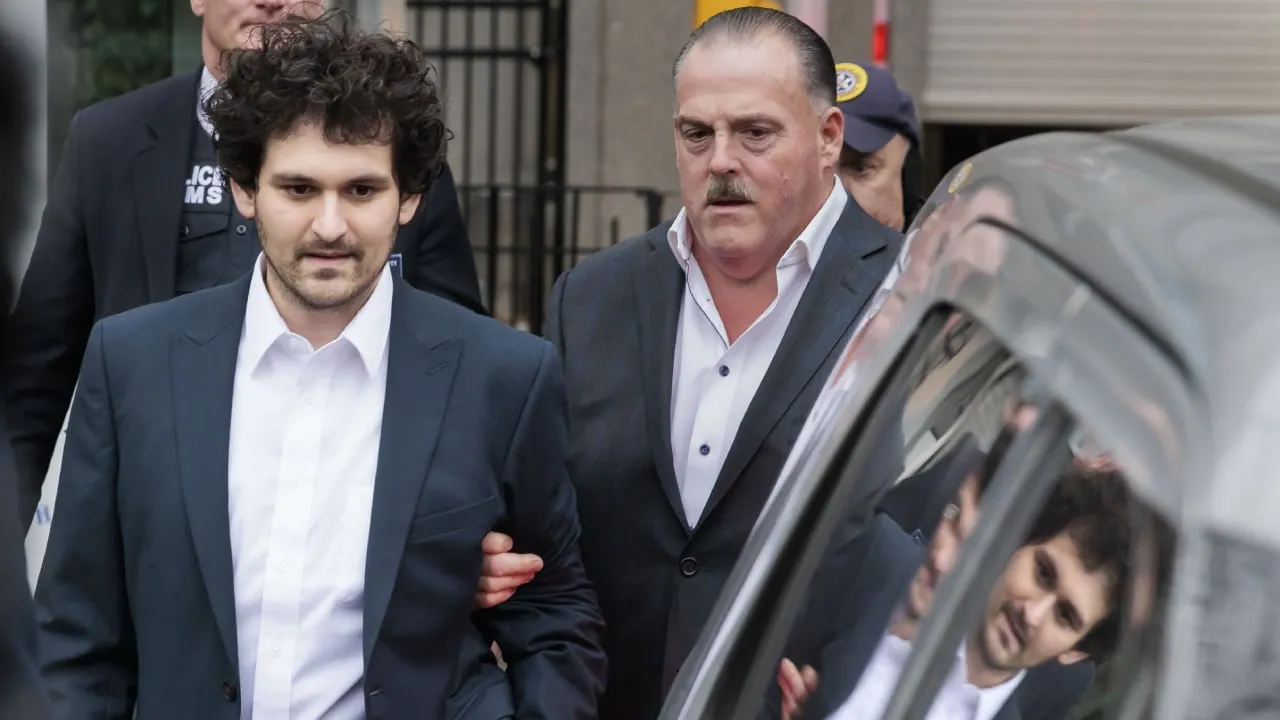Sam Bankman-Fried ‘Haunted’ by FTX Mistakes After 25-Year Prison Sentence: Report

In an email exchange with ABC News, the disgraced crypto mogul said he’s trying to make things right from prison.

After getting slammed for showing no remorse for his role in the catastrophic collapse of crypto currency exchange FTX, disgraced co-founder and former CEO Sam Bankman-Fried expressed regret the first time over the Easter weekend.
After being sentenced to 25 years in prison for fraud, money laundering, and conspiracy charges for the industry-shaking scandal that resulted in nearly $8 billion in customer losses, Bankman-Fried said in a set of emails that he was “remorseful” for his actions—but again insisted that he always acted in good faith.
“I never thought that what I was doing was illegal,” he wrote in messages exchanged with ABC News, “I tried to hold myself to a high standard, and I certainly didn’t meet that standard.”
Bankman-Fried expressed empathy for his firm’s former customers.
“I’ve heard and seen the despair, frustration, and sense of betrayal from thousands of customers,” he wrote. “They deserve to be paid in full at the current price,”
Bankman-Fried once again insisted that the company had enough money to pay its debts.
“That could and should have happened in November 2020, and it could and should happen today—it’s excruciating to see them waiting, day after day,” he wrote. “There are and always have been plenty of assets to repay customers, lenders, and investors in full, at current prices or prices at the time.”
Much of his argument is not new. Speaking at his trial on March 28, Bankman-Fried tried to make a case for being a bad manager rather than a criminal, telling the court that he “made a series of bad decisions.”
“They weren’t selfish decisions. They weren’t selfless decisions. They were bad decisions,” he said. “I failed everyone that I care about and everything I care about too.”
His defense also tried to argue that there was a lack of criminal intent.
“Sam is on the opposite end of the culpability scale that they talk about for fraud crimes,” Bankman-Fried’s defense attorney said during closing statements. “There was nothing predatory or rapacious or venal or mercenary or exploitative about his conduct.”
But John J. Ray III, FTX’s new CEO, never bought it—and apparently neither did the jury. “The remorse is nonexistent. Effective altruism, at least as lived by Samuel Bankman-Fried, was a lie,” Ray said in a written statement.
“Why were the bitcoins missing?” he wrote. “A jury has concluded beyond a reasonable doubt that Mr. Bankman-Fried stole them and converted them into other things. For that reason, they are not available to be returned in-kind to his victims.”
Ray III has so far not recovered enough assets to pay creditors in full. However, the current bull run of the crypto market has helped a lot in evening out the scales, a fact that Judge Lewis Kaplan says doesn’t make the damage any less harmful.
“A thief who takes his loot to Las Vegas and successfully bets the stolen money is not entitled to a discount on the sentence by using his Las Vegas winnings to pay back all or part of what he stole if and when he gets caught,” Kaplan wrote.
Bankman-Fried also expressed a desire to make amends.
“I’m haunted, every day, by what was lost. I never intended to hurt anyone or take anyone’s money,” he said. “I’d give anything to be able to help repair even part of the damage. I’m doing what I can from prison, but it’s deeply frustrating not to be able to do more.”
Bankman-Fried has decided to appeal his conviction, a process that could further extend the timeline for a final outcome in his case. He argues that Sullivan & Cromwell, the law firm representing FTX’s new ownership, played a negative role in the trial.
“At the root, SullCrom’s role in the prosecution, the one-sided media frenzy they incited, and the defense’s inability to get in critical evidence at trial, infected the whole process,” he told the broadcaster.
Edited by Ryan Ozawa.







